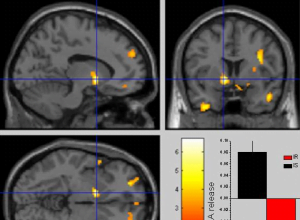American psychologists Edward Deci and Richard Ryan developed the self-determination theory also known as SDT. This theory of motivation suggests that a need to grow and gain fulfillment is what tends to drive people to do things. Self determination theory assumes that people are actively striving towards growth and in order to develop a sense of self, it is essential for people to gain mastery over challenges and take in new experiences.The numerous applications of SDT include better results at work, as well as improved performance in various sports and studies. At the workplace, managers can use this approach to get their subordinates to be more productive. Parents can use SDT to get their children to do things they want. In colleges and universities, professors can inspire their students and raise more interest in their subject. It is all about getting people to motivate themselves rather than simply motivating people.
What Contributes to Intrinsic Motivation
Self-determination theory addresses internal sources of motivation, also known as intrinsic motivation. An example of such motivation among medical students is the desire to gain knowledge for the sake of self-improvement as opposed to grade- or scholarship motivated learning. The major factors contributing to the growth of intrinsic motivation are as follows:
- Challenge: When something is too easy, it is not fun for us, human beings, to pursue it. More challenging goals give more meaning to what we do and a sense of achievement when we accomplish them.
- Curiosity: When something in the environment around us catches our attention, it greatly increases the intrinsic motivation to discover more about it. Curiosity is a driving force of adventures and progress.
- Control: When people feel free to determine what they want to pursue, they are better motivated as opposed to being forced to complete certain tasks. This is due to the fact that it is important for human beings to have control over their lives.
- Cooperation and competition: In some situations, people gain satisfaction from helping other people. This gives us a sense of community, which is important to us as human beings as we are social creatures. Being able to favorably compare our results to others is also beneficial to our intrinsic motivation.
- Recognition: Pretty much anybody enjoys recognition for their accomplishments. This is related to the feeling of being a part of a community and can also increase internal motivation.
Ways to Encourage Intrinsic Motivation
Here a few ways to improve the intrinsic motivation among medical students.
Approach #1: Let the students feel useful and helpful
As mentioned previously, feeling like a part of a community is important to human beings. Here is a great quote that can promote this feeling:
“Everybody can be great…because anybody can serve. You don’t have to have a college degree to serve. You don’t have to make your subject and verb agree to serve. You only need a heart full of grace. A soul generated by love.” – Martin Luther King Jr.
Essentially, this quote means that regardless of someone’s skills, titles, or accomplishments, everyone can do their part for the community. All that matters is the heart. By no means, this discourages education. We all are gifted differently. Some are more talented in certain things than others, but each and every one of us is a part of a community we can contribute to. It is especially important for medical students to know that soon they will be saving lives.
Approach #2: Support self-reflection
Familiarize the students with learning styles and let them define how to learn most effectively. Let your students keep a portfolio of all their assignments. At the end of each term, they can analyze it and see the big picture of their achievements. This is a great way to determine the real strength of each student and help them set the plan for the next semester. Dr. Richard Felder and Barbara Soloman define the following types of learners:
- Sensory vs intuitive
- Visual vs verbal
- Active vs reflective
- Sequential vs global
Approach #3: Give alternative choices
Determine their learning patterns and let them prioritize certain types of tasks. Of course, some types of tasks are compulsory for submission. While some people are great at writing, others perform better in practical tasks, and are much better off spending more time on practical research.
As a matter of fact, reflective verbal learners are eager to write reports and keep the track of their academic achievements, while visual intuitives don?t enjoy such tasks and often seek help from the outside. If a deadline for an essay, lab report or course work is approaching, they can order essay from professional writing services and concentrate on their primary research goals. This, however, does not mean that they are lazy or weak students, they just manage other tasks better.
Offering several approaches to accomplish each task or giving a wider choice of research topics/methods can allow the students to choose the best one that works for them. Tasks are more interesting to accomplish when a student chooses what to do and how to do it. It gives a sense of independence and with this, comes a more responsible attitude toward the assignment. Choice empowers the students and it becomes a win-win situation for everybody.
Approach #4: Shift to non-graded assignments
Perhaps, our current grading system with a focus on grades and competition needs a rehaul. Instead of trying to push grades to fit into a normal distribution, try using global grading schemes, rubrics, and performance analysis. It will pay off in the long run. In many cases, self or peer evaluation has proved to be useful as there is going to be more feedback present.In order to change that, get students to think about studying and learning rather than aiming at grades. One of the productive and non-graded activities are classroom discussions. This encourages communication and feedback exchange between the students. If grades don’t pressure students, they can actually focus on their studies.
Why Intrinsic Is Better Than Extrinsic
External rewards often motivate college students. This includes getting some extra money for good grades from parents or due to scholarships. Punishment avoidance is another extrinsic leverage. Lack of finances and respect among groupmates are good examples of punishment avoidance. Both cases constitute extrinsic motivation. However, David Palanka’s research on classroom strategies suggests, that persuasion and inner motivation are much stronger leverages than punishment or awards.The punishment and reward compose a well known “carrot and stick” motivational strategy, commonly applied in classrooms and workplaces. When students perform well, they get good grades. Whenever someone gets out of the line, they get lower grades or a temporary suspension. Simply punishing or rewarding a student for their actions and accomplishments may keep the students in line, however, it is not a great long term teaching strategy. Neither external reward nor punishment can get the student truly curious about something. Through persuasion, it is possible to spark an interest in medicine. Let your students feel their actions matter because one day very they actually will.
Conclusion
At its core, self-determination theory is all about intrinsic motivation which makes wonders if applied to the teaching process. Learning experience can and should be enhanced by letting the students feel that their goals and activities are under their control. In the long run, such teaching strategies improve student academic performance, self-reflection and social skills.








_1.jpg)